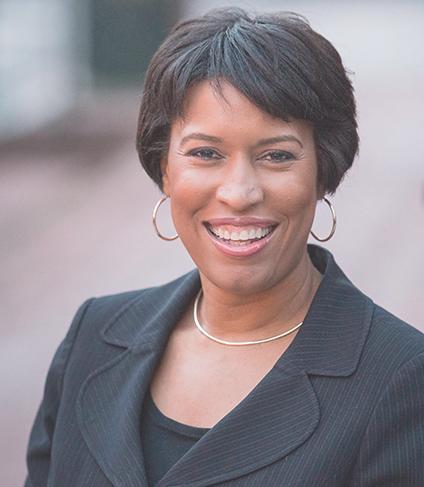There is an often-noted lack of enthusiasm in the electorate considering the choices in the 2014 race for Mayor of the District of Columbia.
We share some of that feeling when looking at the three top candidates on the ballot, all of whom present voters with a mix of positives worthy of commendation and worrisome negatives.
In the end, after due consideration, the Georgetowner endorses the winner of the Democratic Party primary, Ward 4 Councilmember Muriel Bowser, for mayor. This is not done without some misgivings, but they outweigh both the positive qualities she would bring to the job and some of the concerns we have about her opponents.
David Catania, an Independent At-Large councilmember, gave up his powerful slot on the council to run for mayor, for which he should be commended. However, he brings with him a reputation for confrontational, high-handed tactics and arrogance in dealing with opponents, other members of the council, the media and peers. Council member Catania has said that he admits to being passionate in the pursuit of goals and issues, and that he is often “impatient.” The issue of his temperament has become increasingly prominent in the few debates that have been held. Ultimately, that disposition offsets Catania’s love for the city, his wealth of detailed ideas for improving the city and his broad, detailed policy expertise and intelligence.
Carol Schwartz, who entered the campaign as an Independent, has carved out a career as a heartfelt advocate for the city’s less fortunate, around education and labor issues, as a school board member, a long-time at large city council member and a frequent candidate for mayor. But she has been out of office for six years, a gap we feel is too large.
We have some caveats about Muriel Bowser’s candidacy, which was begun and built with the support of mentor Mayor Adrian Fenty. Like many observers of this campaign, we were put off by her pronouncement that she would participate in only four debates, which effectively cut out many wards and neighborhoods in looking at the candidates up close and personal. We also, like some of her opponents, question the depth of her legislative output.
Yet, we have also seen that she has grown in the course of her years on the council with regard to achievement and expertise. Over the course of the campaign, she has taken on a sure-footed, appealing confidence. She has shown that she can negotiate, compromise and work effectively with her peers on the council and in the wake of political scandals that wounded Mayor Vincent Gray and ousted council members Kwame Brown, Michael Brown and Harry Thomas Jr. She addressed the issue by putting forth a broad ethics reform bill which, while met with some skepticism, was a notable improvement over the system in place.
In the end, in a city in which politicians always talk about the concept of “One City,” we feel that Bowser, with her strong roots in the community (she was born and raised in D.C.) is the strongest candidate. She holds a broad appeal across the city among both black and white voters, and we admire her zeal for affordable housing and her ability to work with a broad spectrum of people, especially in a city in the midst of major changes. Bowser should be the next mayor of Washington, D.C.


